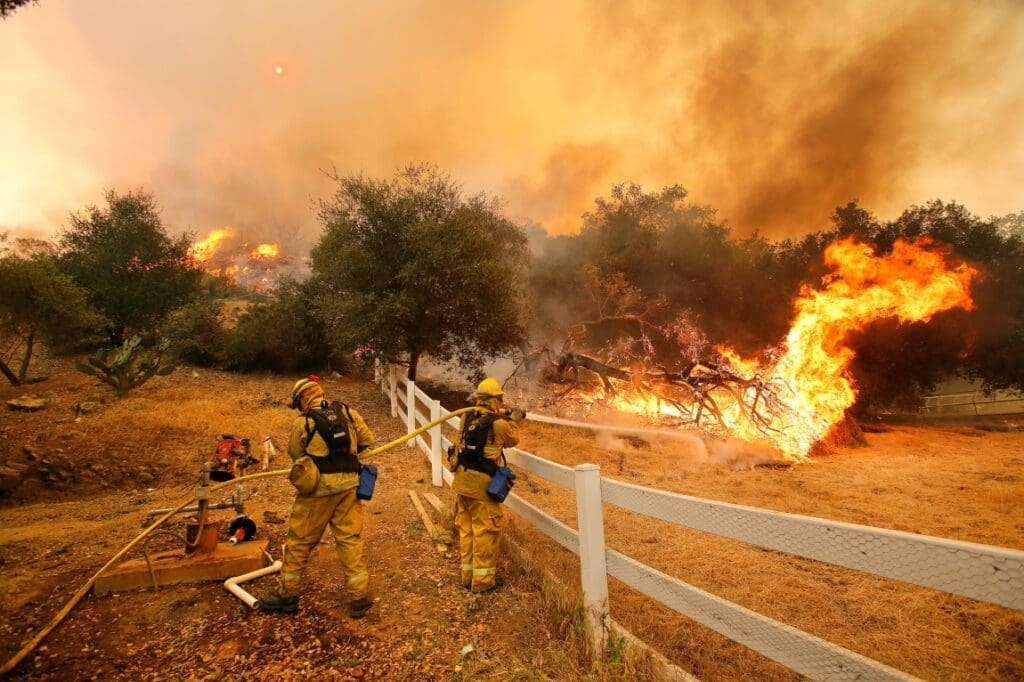By Potsdam Institute for Climate Impact Research (PIK)
Human-made climate change can lead to a destabilisation of large-scale components of the Earth system such as ice sheets or ocean circulation patterns, the so-called tipping elements. While these components will not tip over night, fundamental processes are put into motion unfolding over tens, hundreds or thousands of years. These changes are of such a serious nature that they should be avoided at all costs, the researchers argue.
In their new study, published in Nature Communications, they assessed the risks of destabilisation of at least one tipping element as a result of overshooting 1.5 °C.
Their analysis shows how crucial it is for the state of the planet to adhere to the climate objectives of the Paris Agreement. It further emphasises the legacy of today’s climate (in)action for centuries to millennia to come.
“While timescales to 2300 or beyond may seem far away, it is important to map out tipping risks to the best of our abilities. Our results show how vitally important it is to achieve and maintain net-zero greenhouse gas emissions in order to limit these risks for the next hundreds of years and beyond,“ explains co-lead author Tessa Möller, scientist at IIASA and PIK. “Our calculations reveal that following current policies until the end of this century would lead to a high tipping risk of 45 percent of at least one of the four elements tipping by 2300.”
Exceeding 2 °C global warming strongly increases tipping risks
“We see an increase in tipping risk with every tenth of a degree of overshoot above 1.5 °C. But if we were to also surpass 2 °C of global warming, tipping risks would escalate even more rapidly. This is very concerning as scenarios that follow currently implemented climate policies are estimated to result in about 2.6 °C of global warming by the end of this century,” says Annika Ernest Högner from PIK, who co-lead the study.
“Our study confirms that tipping risks in response to overshoots can be minimised if warming is swiftly reversed. Such a reversal of global warming can only be achieved if greenhouse gas emissions reach at least net-zero by 2100. The results underline the importance of the Paris Agreement’s climate objectives to limit warming to well below 2 °C even in case of a temporary overshoot above 1.5 °C,“ says study author Nico Wunderling of PIK.
The four tipping elements analysed in the study are pivotal in regulating the stability of the Earth’s climate system. So far, complex Earth system models are not yet able to comprehensively simulate their non-linear behaviour, feedbacks, and interactions between some of the tipping elements. Therefore, the researchers used a stylised Earth system model to represent the main characteristics and behaviour and thereby systematically include relevant uncertainties in tipping elements and their interactions.
“This analysis of tipping point risks adds further support to the conclusion that we are underestimating risks, and need to now recognise that the legally binding objective in the Paris Agreement of holding global warming to ‘well below 2°C’, in reality means limiting global warming to 1.5°C. Due to insufficient emission reductions, we run an ever increasing risk of a period overshooting this temperature limit, which we need to minimise at all costs, to reduce dire impacts to people across the world,” concludes PIK director and author of the study Johan Rockström.
Journal Reference:
Tessa Möller, Annika Ernest Högner, Carl-Friedrich Schleussner, Samuel Bien, Niklas H. Kitzmann, Robin D. Lamboll, Joeri Rogelj, Jonathan F. Donges, Johan Rockström & Nico Wunderling, ‘Achieving net zero greenhouse gas emissions critical to limit climate tipping risks’. Nature Communications 15, 6192 (2024). DOI: 10.1038/s41467-024-49863-0
Article Source:
Press Release/Material by PIK
Featured image credit: tawatchai07 | Freepik




